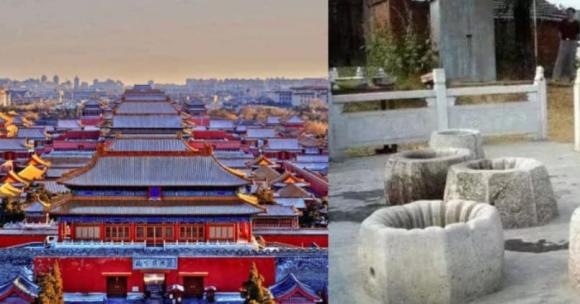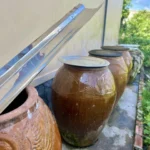Why Did No One Dare Drink From the 72 Wells in the Forbidden City?
The Forbidden City of the past boasted numerous wells (around 72, according to records), but the water from these wells was never consumed due to the following reasons:
Doubts About Water Quality
Historical records indicate that the wells within the Forbidden City were typically not used for drinking water due to contamination concerns. This apprehension stemmed from the possibility of well water being polluted by the surrounding environment, especially in a crowded palace where waste or toxic substances could seep into the water source. As a result, many avoided drinking from these wells out of fear of ill health and bad luck.

Superstition and Folklore
Ancient beliefs held that the wells in the Forbidden City were associated with ghost stories or curses. Additionally, according to some legends, these wells were sites where concubines and palace maids were executed or committed suicide, spiritually tainting the water. For instance, the well of Zhen Fei (where a consort of Emperor Guangxu was pushed) is infamous for its eerie tales, striking fear into the hearts of many. Consequently, out of respect for the deceased and a fear of the supernatural, modern-day visitors refrain from drinking this water.
Poisoning Risks
Amidst the intricate political landscape of the court, rife with power struggles and conspiracies, well water within the palace was considered dangerous due to the constant threat of poisoning. As a result, the imperial family’s drinking water was strictly sourced from trusted suppliers. Rival consorts often attempted to harm each other by lacing these wells with poison, and to this day, traces of these toxins may remain in the soil. Understandably, no one dared to consume water from these potentially lethal sources.

Wells Served Alternative Purposes
Nowadays, all the wells in the Forbidden City are utilized for alternative purposes, such as firefighting, irrigation, or emergency reserves, rather than for drinking. Consequently, since the water is not circulated, consuming it could pose health risks.
In summary, a combination of factors, including concerns about water quality, superstition, and security issues, led to the wells in the Forbidden City being avoided as a source of drinking water, despite their abundance.
Is There Any Truth to the Old Superstition: Can a Black Cat Bring the Dead Back to Life?
“Superstitions surrounding death are prevalent in many cultures, and one such belief is the cautionary tale of guarding against cats during a funeral. This superstition warns that if a cat jumps over the body of the deceased, the soul may be startled and prompted to rise again. A chilling thought, indeed, and one that has likely contributed to the enduring wariness of these enigmatic creatures throughout history.”
“Heaven-Sent Relief: Lower Power Bills for My Home”
For generations, my family has embraced the practice of collecting and utilizing rainwater. In the past, drilling wells for groundwater was a challenging and costly endeavor, so rainwater remained the primary source for activities that did not require clean water. I often joke with my children, saying, “Every month, ‘Mother Nature’ gives us a discount on our electricity bill.”



































